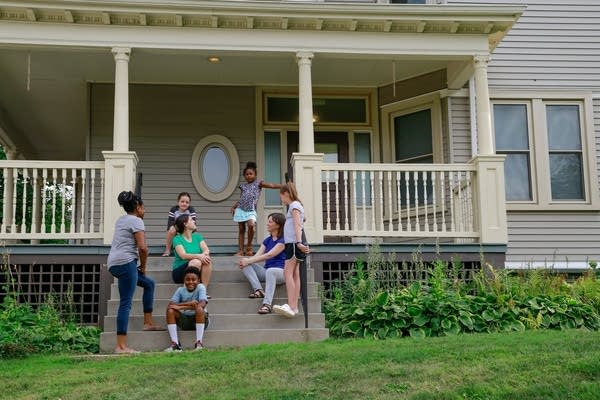St. Paul advocates move online to help domestic abuse survivors

Go Deeper.
Create an account or log in to save stories.
Like this?
Thanks for liking this story! We have added it to a list of your favorite stories.
On a normal day, the staff at Women’s Advocates of St. Paul have a tough job.
“If you are experiencing domestic violence, or know someone who is, we provide crisis intervention and safety resources so you can plan for yourself to get to safety in the way that is best for you,” said Lauren Rimestad, director of outreach for the nonprofit.
They help domestic abuse survivors in every way, from taking their first contact, sheltering them in a 50-bed facility in St. Paul and helping them for a year after they leave the shelter.
And usually, Women’s Advocates workers are busy with more need for their services than they can provide.
Turn Up Your Support
MPR News helps you turn down the noise and build shared understanding. Turn up your support for this public resource and keep trusted journalism accessible to all.
“Across the state, only 6 percent of people who call our collective crisis line for domestic violence when they are seeking shelter [receive] the shelter that they're looking for,” Rimestad said. “So that's 94 percent of domestic violence crisis line callers who don't get shelters they're looking for.”
But since the coronavirus pandemic hit, things have been different: The crisis line has been much less busy than usual. Advocates have a grim theory as to why things have gotten quiet.
“It's much easier to make a phone call when you're on the lunch break at school or work or out in the community than it is to make a phone call when you are in your home with the person who is harming you,” Rimestad said.
The phone calls haven’t stopped, but they have changed. “The phone calls are whispered and sometimes they're coming from inside a closet or in the bathroom with the shower running,” she said. “That means that people have very intense safety concerns at home.”
As an essential service, Women’s Advocates haven’t stopped their work. The shelter remains open, with COVID-19 safety protocols. And Rimestad said advocates have transitioned to providing services via an online chat and safety questionnaire to help people make a plan.
With people stuck at home, the safety plans “get a little bit macabre,” Rimestad said.
“Our safety planning is [to] go to a safe spot in your home, a place that is away from weapons,” she said.
Staff also advise those seeking help to keep a “go bag” hidden somewhere in the home — “just in case the opportunity arises to depart,” Rimestad said.
While restrictions on in-person contact make abuse survivor advocacy more difficult, Rimestad, her coworkers and Women’s Advocacy volunteers are moving forward. And she said it has been heartening to see how the community has reacted to people being isolated in their homes.
“It's been eye opening to see how the community has reacted to this crisis,” she said. “And I wonder [if] there isn't a subconscious desire to connect and provide safe resources to people who are experiencing that when it's paired with violence and their intimate partner relationships.”
Women’s Advocates’ crisis line: (651) 227-8284 | resources@wadvocates.org


